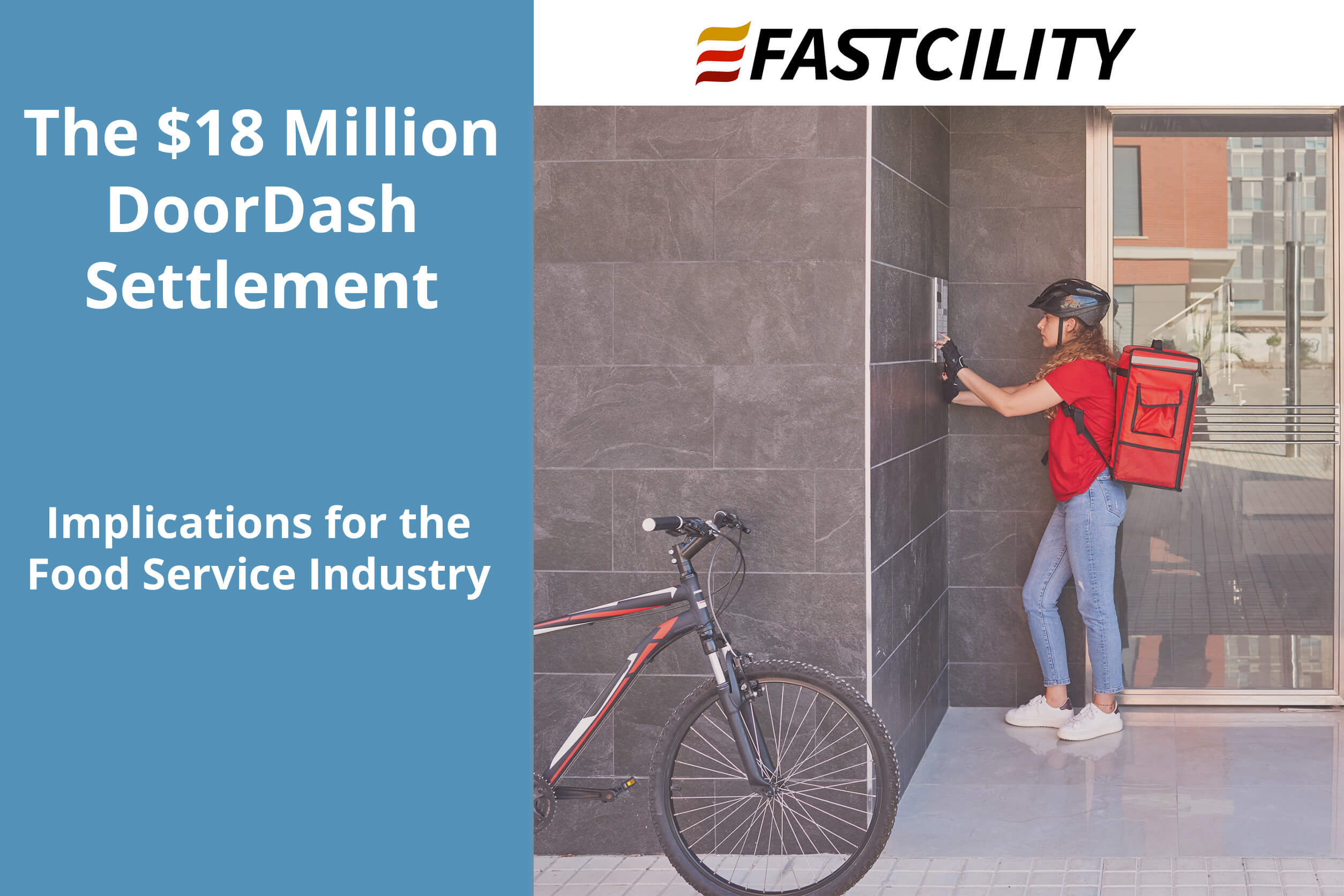Summary
DoorDash settled an $18 million lawsuit with the City of Chicago for misleading practices, including listing restaurants without consent and marking up menu prices. The settlement highlights the need for greater transparency and oversight in the food delivery industry.
The $18 million settlement between DoorDash and the City of Chicago marks a major milestone for restaurants, cafés, bars, and owner-operators who rely on third-party delivery. Beyond the headlines, this case will create a shift in the expectations for delivery platforms.
DoorDash’s Influence on the Industry
Founded in 2013, DoorDash quickly grew into one of the largest food-delivery platforms in the U.S., competing directly with Uber Eats and Grubhub.¹ Their aggressive expansion helped normalize delivery as a default dining option, pushing restaurants to adapt to new customer expectations.
But the model also introduced new complexities: higher commissions, platform-controlled pricing, unclear fee structures, and shifting contract standards. Over time, this tension has prompted operators to look more closely at how platforms represent their brand, menu, and pricing.
Chicago’s Lawsuit and Why DoorDash Settled
The City of Chicago accused DoorDash of several misleading practices, ultimately resulting in an $18 million settlement. ² The allegations included:
- Listing restaurants on DoorDash without consent ²
- Charging a misleading “Chicago Fee” that customers believed was city-mandated ²
- Marking up menu prices above in-restaurant prices without clear disclosure ³
DoorDash did not admit wrongdoing and stated the challenged practices were outdated. ²
How the $18M Will Be Distributed
As outlined in reporting: ³
- $3.25M → restaurants previously listed without consent
- $5.8M → credits for current partner restaurants
- $4M → delivery credits for consumers
- $500k → couriers affected under older pay models
- $4.5M → to the City of Chicago for costs and administration
This marks one of the largest municipal actions against a major U.S. delivery platform so far.
Implications for Owner-Operators
Platform Adjustments
As major delivery platforms encounter increased regulatory scrutiny, there will be changes to how they operate. These will likely include modifications to commission rates, marketing credits, and alterations to algorithms that determine restaurant visibility.
Contract and Listing Oversight
The recent settlement underscores the importance of diligent contract and listing management. Risks like unapproved “ghost listings,” outdated or inaccurate menus, unauthorized price hikes, and automatically renewing agreements can damage a restaurant’s reputation and financial well-being.
Protecting Margins Through Direct Channels
Restaurants will benefit by reinforcing direct-ordering options such as pickup, online ordering, and first-party delivery. Strengthening these channels can help maintain profitability by reducing reliance on third-party platforms and minimizing the impact of any commission or fee changes.
Maintaining Customer Trust
Customer perception remains a significant concern. Even when platforms control pricing, diners may attribute higher menu prices or unexpected fees to the restaurant itself. To address this, operators should proactively communicate with customers, about why delivery pricing may differ from in-house pricing, identifying the best ordering channels for value, and clarifying which fees are determined by the restaurant versus the platform.
How This Will Reshape the Industry
More Oversight and Standardization
Cities and states are signaling that delivery platforms must operate with:
- Clear price disclosures
- Verified restaurant consent
- Transparent fee language
- Fair listing practices
New Business Models from Platforms
Expect increased reliance on:
- Subscription programs (e.g. DashPass)
- New fee structures
- Data-driven placement incentives
Greater Restaurant Leverage
Operators may gain negotiating power as regulators tighten the rules around platform conduct.
A Push Toward Direct Ordering
As platform costs and compliance obligations increase, many restaurants are accelerating:
- Loyalty programs
- Direct delivery
- Automated ordering
- Pickup and curbside strategies
The Takeaway
The DoorDash settlement signals a turning point. Regulators are scrutinizing delivery platforms more intensely, and restaurants have a growing opportunity to reclaim control over pricing, branding, and customer engagement.
For owner-operators, the message is clear: stay proactive, stay informed, and diversify your channels. Those who do will be better positioned in a delivery ecosystem that’s rapidly evolving toward greater transparency and fairness.
Footnotes
¹ DoorDash background and competitor landscape – https://en.wikipedia.org/wiki/DoorDash
² CBS Chicago report on Chicago’s allegations and settlement – https://www.cbsnews.com
³ Restaurant Business Online settlement breakdown – https://www.restaurantbusinessonline.com/


Recent Comments